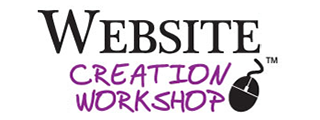Who would you rather talk to at a party? The person who won’t stop talking about themselves, or the one who’s genuinely interested in you. Most of us prefer the second.
The same goes for your website. If your copy is all about you (your background, your achievements, your story), then your visitors may tune out. Your website isn’t about you. It’s about your audience and what they need.
When someone lands on your site, they’re thinking, “What’s in it for me?” If you can answer that clearly and quickly, they’re far more likely to stay, trust you, and take the next step.
Dos and Don’ts of Great Website Copy
Let’s start with the basics. The word “copy” simply refers to the words and text your website visitors read. That includes everything from your homepage to your product descriptions to your contact page.
But here’s the key: Your website copy isn’t about you—it’s about your potential client.
Don’t: Make It All About You
Many business owners fall into the trap of talking too much about themselves. They highlight how long they’ve been in business, how many awards they’ve won, or how passionate they are. But to a first-time visitor, those things aren’t what matter most.
Do: Make It All About Them
Instead of bragging, paint a picture. Show your reader how your product or service can solve a problem, remove a frustration, or help them reach a goal. When you write from their point of view, you speak their language.
The Science on WHY People Like to Brag
So why is it so tempting to talk about ourselves? This short video explains the psychology behind it.
Why Bragging is Boring
Have you heard of “WIIFM”? It stands for “What’s In It For Me?”. It’s an acronym to remind us of what interests potential customers. They want to know: What do I get if I buy this product or service?
When you’re writing website copy, your reader should be at the forefront of your mind. Write it from the “WIIFM” perspective because this is what the reader is thinking while they read your copy. Your readers are full of doubt and skepticism. They won’t be impressed with all your awards and accomplishments. They want to know what they’re going to gain by paying attention to YOU.
Appeal to Emotion – Not Just Logic
Facts, statistics, and credentials are helpful, but emotions are what get people to take action. Your website visitors want to feel seen and understood. So instead of listing your qualifications, speak directly to their desires, fears, and frustrations. Show them how your service can make their life better or help them overcome their problem.
For example, instead of saying, “I’m a certified coach,” say, “If you’re feeling overwhelmed, I’ll help you create a simple plan that actually works for your life.” Focus on the transformation. They want results, not a résumé!
Focus on the Benefits, Not on the Features
Whenever you mention the features of your product or service, always discuss how it makes a positive change in your reader’s life or business. Put your focus on the benefit to your potential clients, rather than on the actual feature of the product or service.
Feature = an attribute or description of your product or service
Benefit = how that attribute can help solve a problem or fulfill a desire
A Few Examples
Here are a few examples of how we connect the features of a product to a benefit for the customer.
XYZ Gas Station
Feature: It’s open 24 hours a day
Benefit: You can go in the middle of the night and get gas or a snack if you’re hungry at 2 am.
WordPress
Feature: It’s cloud-based,
Benefit: You can work on the same article from your phone, tablet, laptop, or desktop. Wherever it’s most convenient for you at the time
Website Creation Workshop
Feature: My course includes 8 live coaching webinars.
Benefit: You get personalized support so you can move past tech roadblocks and launch faster.
When You Should Brag About Yourself
There is an appropriate place to talk about yourself. It’s your About page. This is your opportunity to share all your business accomplishments and successes.
The About page is a very important part of your website. When a visitor clicks on ‘About Us’ or ‘About Me’, they are expecting to learn more about you. They want to know about your experience, track record, and why they should trust you.
Studies show that the About page is the second most visited page on a website, second only to the Home page. Read my article here on 5 Things Your ‘About Us’ Page Should Have.
If you’d like to share a few brief tidbits about yourself on your blog posts, use an Author Box. This helps readers learn a little about you in case they’ve landed on your site through a search engine. Click here to learn more about what an “Author Box” is in WordPress.
Closing Thoughts
What is your website telling your visitors? Is it telling the visitor all about you, your work, and your accomplishments? Or, is it speaking to them? Is it telling them how you can help them?
Remember, when a visitor comes to your site, they are thinking, “What’s in it for me?” Your website copy should answer that question. Make it about them and why your product or service is the best solution to solve their needs.
The next Website Creation Workshop™ is coming soon! Get on the list to be notified when it opens here: https://websitecreationworkshop.com/next-workshop/



































